
My stand partner Jacques and I before the encore at the clarinet concert.
I returned to France for one final night. In less than 16 hours, I would step off a transatlantic flight, enjoy a fine assortment of French cheeses, tartes and quiches, play in a large concert, say a few more goodbyes, pack most of my possessions into a couple pieces of luggage, sleep an hour and hop on a plane to Berlin.
Even though it was jam-packed, I was thankful to spend one more evening in Toulouse. The concert was the 20th anniversary of the clarinet ensemble, so I got to play with former members of the ensemble and also a guest virtuoso. My French friends were shocked at his improvisation ability. In the Artie Shaw Concerto, he played a lick from "Happy Birthday," and I got plenty of questions about that afterward. Oh, the freedom of jazz music!
A few of my friends who I didn't have the chance to see before I left for Christmas came to the concert. I also saw other friends for one last time (or, until the next time....à la prochaine). I was reminded of just how many wonderful people God put in my path while I lived here.

Some of my many friends who came to my concert. Merci beaucoup !
I didn't start packing until about 10 p.m., but the adrenaline and caffeine helped me to finish the task. I probably spent too much time trying to maximize every last gram of my 23-kg limit, but everything I could bring with me was one less thing to mail.
My roommate Lucy helped me get my luggage from the metro to the airport shuttle. This was no easy task. In the haze of jet lag, I didn't transfer my backpack into my large duffel bag in order to be able to strap it on my back. This meant that the duffel bag was more like a body bag – dead weight!

Yes, it was a little like I had packed a small child in my bag (thanks, Kami, for being my photo illustration from our Kindred days).
Anyways, I barely got my luggage off the bus and into the airport. And if it wasn't for a nice airport employee who watched my luggage while I found a luggage cart, I might have missed my flight trying to kick the duffel bag up an incline to the check-in counter! All things considered, I had a smooth, short transition from the US to France to Germany. Thank you for however you supported me in Toulouse. I won't forget the chapter of my life story written in France. If you want to follow the encore of my French experience in Berlin, Germany, visit my new blog, D. Marie in Germany. Merci et à bientot en Allemagne !
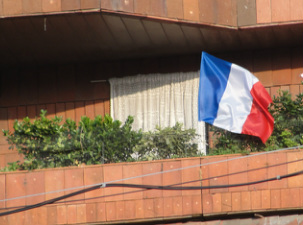 After I wrote "How France Changed Me," I realized there were a lot of significant changes that I left out. With no further adieu, here are a few more ways that I have been transformed.
1. I use the metric system. I am not afraid of Celsius, kilometers or milliliters anymore. I can even tell you what a centiliter is.
2. My social etiquette has changed. You will find me waiting for a bon appetit before beginning to eat. My finger foods group has shrunk. I find kissing people to say hello and goodbye more or less normal.
3. I use the 24-hour clock. Seven p.m. is now 19:00. Midnight is now 0:00. The nice thing about the 24-hour clock is that you can't mistakenly set your alarm for a.m. instead of p.m. I'm converted!
4. My friends are just my friends. Growing up in a fairly homogenous population, other ethnicities and nationalities were rare. In France, it was pretty normal to meet people from other countries. I no longer have American friends and French friends. Friends are friends. Period.
5. I value Sabbath time more. In France, everything was closed on Sundays. At first, I had to be intentional about making sure I had everything I needed on Saturday. After a while, I appreciated the quiet of Sundays and the fact that nearly everyone could rest and/or spend time with their family and friends on that day. Also, in learning a new language and adapting to a new culture, I was tired more often. This was more difficult than stores being closed. Eventually, I accepted the fatigue and gave myself permission to read a book, take a nap or go to bed early once in a while.
 I learned France is more than just Paris and the Eiffel Tower. I learned France is more than just Paris and the Eiffel Tower. We are products of culture – including geography, heritage, family, language, cuisine and so much more.
Before coming to France, the longest I had lived in a "foreign" culture was five months when I traveled with a music and relational ministry team around South America. Even though this was a significant and formative experience, we were living in host homes and changed locations on average weekly. I could never "settle in."
In Toulouse, I had an address and the opportunity to establish myself as a resident of the city. Even as a foreigner, I had a sense of belonging.
We often talk about how we made a mark on a place, but in this post, I want to talk about how this place and country made its mark on me.
So how did I change? I'm sure I have yet to note all the ways. Besides the obvious differences like speaking the language and knowing more about French cuisine, here is a short list of the differences I am aware of:
1. I don't drive. It has been more than 10 months since I have driven a car. Crazy, right? Europe has a great public transportation system, and Toulouse is no exception. I learned landmarks and gave directions in relation to metro stops. With the lack of parking (and necessity of parallel parking if you do find a spot), I appreciated using my own two feet when I could. I also had a bike card where I could check out a bike from one station and return it to another. Covoiturage or carpool was also my friend and a great way to meet new people and get where I needed to go.
2. I value quality over quantity. Most of you know that I am a recovering bargain hunter. I still love a good deal (and free stuff). However, I now look for signs of quality (like looking to see if a bottle of wine was bottled on the property or seeing whether a cheese was made with pasteurized or raw milk). Not having a car, I adopted French habits of buying less more often. Having a collection of 50 cereal boxes was no longer realistic. My pantry consisted of a few packages of pasta and rice, spices, a box of cereal and oatmeal, and a few baking staples.
3. I buy more freshly and directly. One-stop shopping is synonymous with the United States. In France, I learned to buy my fresh fruits and vegetables from the market, my meat from the butcher shop and my bread from the bakery. I appreciated eliminating the "middle man" when possible and having a more relational buying experience. And let me tell you – fresh is better! I only bought a few bags of frozen vegetables for the times that I couldn't make it to the market.
4. I take more time. I used to think it took forever to get anywhere. Now I am used to budgeting an extra half-an-hour on each side of an errand. It is normal. I make more meals from scratch (microwaves are just for reheating leftovers), and I expect lunch to take at least an hour and dinner to take at least two hours. I still value efficiency, but with the realization that I will never get as much done as I would like to each day. And I'm ok with it.
5. I agree to disagree – all the time. I assume when I meet someone that we probably don't share the same beliefs, and it doesn't intimidate me. While I don't volunteer much information up front, I am comfortable expressing my ideas without worrying if someone will be deeply offended and disown me. The French have mastered the art of respectful, intelligent debate, and I am a fan.
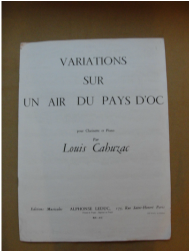 "Variations Sur Un Air Du Pays D'Oc" was lying on top of my end table when I was looking for clarinet music to practice this summer. I knew I had packed it, but I honestly didn't know much about it.
I played this for a high school contest when the only French I knew was, "bonjour" and "merci." I'm sure my French friends would have been appalled at my Anglicized pronunciation, which would have gone something like, "Vay-rie-ay-shuns suhr unn air doo payz dock."
Now, having lived in France for several months, I knew that pays d'oc was referring to the region of France where Occitan, a dialect, is spoken. Toulouse, the city I was living in, belongs to this language group.
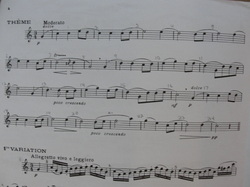 After doing a bit of research, I learned that the composer, Louis Cahuzac, grew up less than two hours from Toulouse and attended the Toulouse conservatory. This piece was based off of a folk tune, Se Canto, originating in the valley of the Garonne (which is the river that runs through Toulouse). I never imagined that I would get so "close" to this music.
How did this high school musician from Minot, ND end up as a 20-something Christian worker in Toulouse, France? God only knows.
He knew long before I even learned to play a clarinet, that I would be called to serve in France. He knew I would become a part of a beautiful community where I could walk alongside and support nationals, learn French and even be given the opportunity to play in a French clarinet ensemble (with clarinetists and teachers from this very same conservatory).
Already, the variations of my life that God has written astonish me. The timid girl who couldn't even raise her hand to use the bathroom became a high school student who loved performing. That young woman became a college student with three majors, who felt called to lead a team of five strangers playing music and doing relational ministry in the US and South America after she graduated. That fledgling leader got broken of entitlement during a 15-month period of underemployment, started a couple ministries with help from friends, organized some renegade trips to serve in Ecuador and China while working full-time and then left it all to move to France.
Now, in my last years of my 20s, I am off to Berlin to tell the stories of what God is doing as Christians unite to seek the welfare of the city. Do I know what this next variation will bring? Not completely. But I know that God writes some incredibly beautiful symphonies out of our brokenness and weaknesses and that His plans are much more extensive and trustworthy than mine.
"'For I know the plans I have for you,' declares the Lord, 'plans for welfare and not for evil, to give you a future and a hope.'" – Jeremiah 29:11
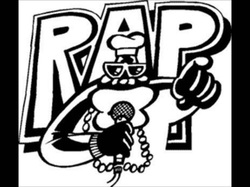 Sometimes creative projects don't quite work out the way you want them to...and then you use them anyways.
I found some fairly easy-to-use animation software, a voice-changing application and a semi-willing accomplice (who will remain anonymous).
The result? A low-quality, highly quirky announcement video in French. For you non-Francophones, the first announcement is about the next RAP (our pre-church group) and the second is about the Chinese-style Thanksgiving celebration coming up.
While this is far (and when I say far, I mean really far) from my greatest work, many hours of laughter went into this project, so I feel the need to share it. Enjoy!
It doesn't look like much, does it? A bunch of posts and a bit of plant rubble.
It is common knowledge that fine wine undergoes an aging process, but I didn't know until my family and I visited several vineyards in Graves, France, that the plants themselves must also reach maturity.
How long does it take? According to the master of this vineyard in Graves, France, it will take ten or more years for these vines to resemble the ones below. A whole decade? Just to start producing enough grapes for wine? Now granted, once the vines begin producing, they will continue to bear fruit for well over a decade, provided that they are well-tended to and the conditions of the soil and weather patterns are conducive to the grapes' development.
My experience in the vineyard caused me to rethink what Jesus had to say about the vine and the branches.
"I am the true vine, and my Father is the vinedresser. Every branch in me that does not bear fruit he takes away, and every branch that does bear fruit he prunes, that it may bear more fruit. Already you are clean because of the word that I have spoken to you. Abide in me, and I in you. As the branch cannot bear fruit by itself, unless it abides in the vine, neither can you, unless you abide in me. I am the vine; you are the branches. Whoever abides in me and I in him, he it is that bears much fruit, for apart from me you can do nothing." – John 15:1-5
As branches on Jesus' vine, we are dependent upon Him to bear fruit. I cannot bear fruit on my own anymore than a branch of an apple tree can produce an apple when it has been broken off the tree. I am completely dependent on the Gospel of Jesus Christ and the pruning and care of God the Father, the vinedresser, to grow. Apart from Him, I can do nothing.
I have no control of the process either. I can't fast-forward through the years required to grow. It is in God's timing.
The pressure is also off of me. No amount of spiritual discipline is going to expedite growth. All I can do is abide. It is also not dependent on me to make others bear fruit either, for it is God's vineyard. He knows exactly what each branch needs and tends to each one. I can't even come close to his knowledge and care.
So how will anyone know that I am abiding in Christ? By the God-produced fruit in me.
"You will recognize them by their fruits. Are grapes gathered from thornbushes, or figs from thistles?" – Matthew 7:16
The French school of wine-producing is also unique in that they use terroir – that is a sense of place that includes all conditions including geography, geology and climate. Each terroir dictates what variety of grape will best grow there. A vinedresser can't decide one year to grow one kind of grape and try a different one the next year.
This concept of terroir influences how wines our named. All of France is divided in to appellations, literally callings. The names of French wines come from where the vineyard is located. The wine of each region tastes different because of where it was grown.
As Christians, we bear the name of our vine, Jesus Christ. As His strength is manifest in us, we bear fruit – fruit that looks, smells and tastes like the life-giving hope we have in Him. What a privilege it is to bear His name!
 Translation is not easy. It is even harder when it involves specialized language.
For one of my last language school projects, I presented a poem I had written as a critique of adolescent use of internet dating and short-hand chatroom vocabulary.
The only issue was that I needed to translate into French. So after hours researching French texting lingo. Here's the original and the French "translation" side by side:
| <3 sugary sweet sara <3 says:
i met my bf 2day
@ cupid.com
that's y i couldn't talk 2 u b4
i said 2 him, how r u? want 2 im?
@ cupid.com
i could c my bf pic ;-) lol
i said 2 him, how r u? want 2 im
on msn
i could c my bf pic ;-) lol
i couldn't stop :-)ing
on msn
omg he is like sooo hott
i couldn't stop :-)ing
@ the hottest guy on the www
omg he is like sooo hott
i <3ed him already
the absolutely hottest kewlest guy on the www said g2g, cya
i asked y
i <3ed him already
bc idk
i asked y
i was soooo :-( he was offline, I wanted 2 :’(
bc idk
omg is that him?
i was soooo :-( he was offline…jk
that's y i couldn't talk 2 u b4
omg! it is him! he says hi :-0 ttyl
i met my bf 2day
| <3 sara super sucrée <3 dit:
G rencontré 1 mek auj
@ cupid.com
C pr ça ke j ne pouvé pa te parlé avan
J l8 é di slt komencava ? TOQP ? parlo
@ cupid.com
J pouvé voir son foto mdr ;)
J l8 é di, slt komencava ? TOQP ? parlo
sur msn
J pouvé voir son foto mdr ;)
j ne pouvé pa aréT 2 J
sur msn
omd il è oZ
j ne pouvé pa aréT 2 J
@ Le mec le + oZ sur le net
omd il è oZ
J l8 é déjà di jtm
le mec le + oZ sur le net m’a dit g2g @+
G 2manD Pkoi
J l8 é déjà di jtm
PK jnsp
G 2manD Pkoi
j’éT tllmt L Kil éT DconnecT. J voulé :’(
PK jnsp
omd C l8 ?
j’éT tllmt L Kil éT DconnecT… j'dec
C pr ça ke j ne pouvé pa te parlé avan
omd C l8 ! il di slt :O @+
G rencontré 1 mek auj
| For those of you who know French, here is the key for understanding the texting language:
| <3 = un cœur, aimer
G = J’ai
1 = un
mek = garçon
auj = aujourd’hui
@ = à
C = c’est
pr = pour
ke = que
jJ= je
pouvé = pouvais
pa = pas
parlé = parler
avan = avant
l8 = lui
é = ai
di = dit
slt = Salut
komencava ? : Comment ça va ?
TOQP ? : T’es occupé ?
parlo = Parlons
| foto : photo
mdr = mort de rire
aréT = arrêter2 = de
omd = Oh mon dieu !
è = est
oZ = osé
+ = plus
net = Internet
jtm = Je t’aime
g2g = je dois partir
@+ = à plus
2manD = demandé
Pkoi = Pourquoi ?
PK = parce que
jnsp = je ne sais pas
j’éT = j’étais
tllmt = tellement
Kil = qu’il
DconnecT = déconnecté
voulé = voulais
j'dec = je déconne
|
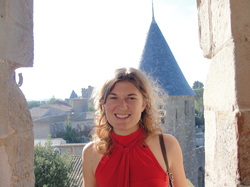 "Cheveux" or "chevaux." One letter makes all the difference. The first means "hairs," and the second means "horses." It may have been fear of saying, "Je veux couper mes chevaux," (I want to cut my horses) that caused me to wait nine months between haircuts (yes, my last haircut was back in the States).
Anyways, a haircut in France is quite the experience. First, my hairdresser and his last client tried to guess my nationality. They guessed pretty much every nationality in Western Europe and Scandinavia before giving up.
After that game was done, we went down to business. He didn't want to give me just a haircut but a style. He showed me all kinds of photos of looks that he just "adored." Once we settled on a look, he went to work, shampooing my hair and then cutting it seemingly at random. He even showed me a Spanish haircutting technique, which he called "magic," where hair is twisted vertically to make a tower and then let go while cutting whatever hair the scissors meets in the whirlwind. Apparently this gets rid of dead ends.
My hairdresser was infatuated with his work. He would consistently ooh and ahh at his creation (yes, the words, "oh la la" did come out of his mouth). He then proceeded to ask me about my love life and was entirely convinced that I was going to spend that night winning over men's hearts. He continued to tell me how beautiful I was (in a non-creepy way) and lectured me about how I shouldn't have insecurities. "Can't you see that you are beautiful?" he asked me. "You are beautiful." I guess a self-esteem boost comes with the package ;).
To top everything off, he pretty much made me make claws and growl in the mirror (after all, the haircutting smock I was in was an animal print...it was only natural). Watch out world!
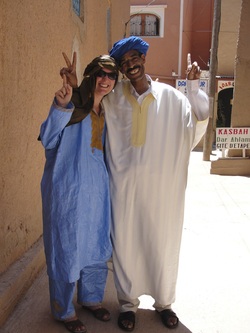 Powerless. This is what I felt like as a woman in Morocco.
Don't get me wrong. Morocco is a beautiful, incredible country. I was blown away by breathtaking sights – the Atlas Mountains, ancient cities, endless rolling sand dunes.
My trip with my friend Alyssa was my first taste of life in a non-Western, Muslim-dominant culture. Unintentionally, we also arrived near the end of Ramadan.
Immediately I noticed 98 percent of workers were men, and 98 percent of women had covered heads (the best was the woman with a burqa riding a motorcycle...that's talent!).
We immediately fell prey to one of the many "helpful" men, who called out to us and "made us" accept their help. When the young man asked us for money for his help (he led us around the labyrinth of the Marrakesh medina) to make sure we would be dependent on him, I told him we had nothing to offer him. But my word meant nothing. Even when I chewed him out in French (a first for me) and offered him a coin that Alyssa had, he continued to yell and bang on the door. Only the guest house owner (a man) was able to make him leave.
On the streets, we would get hassled and cat-called. That is, unless a man was with us. Silence.
When we got bedbugs, I brought Exhibit A (the bedbug I captured in my sleep) and prepared a beautiful presentation with identical verified bedbug pictures that I found on the internet. It didn't matter. I was told that the bug was just a mosquito that flew in through the window.
As a result of the bedbugs, we bought Moroccan clothing. The shop owner was happy to show us all his kaftans and offer us a great price. However, when I was ready to pay, the price rose by about 30 percent. I expressed my displeasure and stated the price he had quoted.
Just then, our bus driver (a man) who was also in the shop, began yammering at the shop owner in Berber. I couldn't understand what they were saying, but after observing disgruntled and concessionary body language, it was clear that the shop owner had given in. The price was lowered back to the original, not just for me, but also for Alyssa. Justice.
My experiences in Morocco showed me just how much I am in need of an advocate; someone who can intercede and bring justice. In Western societies, there isn't much that I can't do as a woman. I am independent. But I realize that in other cultures and also biblically, I need help.
In the Bible, there were high priests who interceded for the people, so that they would be able to approach God without fear of God's wrath for their sin. Now, there aren't need for for additional high priests, as Jesus serves as the ultimate high priest.
Now there have been many of those priests, since death prevented them from continuing in office; but because Jesus lives forever, he has a permanent priesthood. Therefore he is able to save completely those who come to God through him, because he always lives to intercede for them.
Such a high priest truly meets our need—one who is holy, blameless, pure, set apart from sinners, exalted above the heavens. Unlike the other high priests, he does not need to offer sacrifices day after day, first for his own sins, and then for the sins of the people. He sacrificed for their sins once for all when he offered himself. For the law appoints as high priests men in all their weakness; but the oath, which came after the law, appointed the Son, who has been made perfect forever (Hebrews 7:23-28)
What a comfort it is to know that I have Jesus who lives to intercede for me and all believers. That in spite of my weakness (in this case, sin), I am saved and thus stand justified before God because of the "once-for-all" work of Jesus on the cross.
 Give God your best. This is perhaps one of the slogans of the church. But do you know that Jesus Christ also died for your worst? For your failures, for your unmet needs, for your pain, for the lies that you've believed so long that they have become your identity.
"But he [Jesus Christ] was pierced for our transgressions; he was crushed for our iniquities; the punishment that brought us peace was on him, and by his wounds we are healed." – Isaiah 53:5
Jesus suffered so that we would have peace and healing. He served the sentence that our sin merits.
Just imagine that you were a convicted, hardened criminal. You were sentenced to the death penalty. But instead of dying, an innocent citizen who had do no wrong offers to die in your place. You try to say "no," but he insists, saying that he loves you and wants to give you a second chance to live. You can't refuse.
With the wonders of plastic surgery, you change places. He is made to look exactly like you, and everyone thinks he is the guilty one. That he has committed heinous crimes. His life is misery, and then he dies while you go free to live a new life.
Everything goes alright for a little while. You can't quite believe that you have liberty, and you have a new zeal for life. Then you are overwhelmed by how bad you are, and you start destroying yourself. You mortify your body and even start contacting executioners. You wonder how hard it would be to build a guillotine in your backyard. Suffering is what you deserve, you tell yourself.
Can you imagine how the person who died in your place would feel, watching you suffer unnecessarily? It would be like a slap in the face for what he had done for you. He died so that you wouldn't have to. He suffered, so that you could start fresh. Justice had already been satisfied. You can't take back what he did for you.
I don't know about you, but I am really good at living in guilt, thinking I need to hold onto my worst. In fact, sometimes, I don't want to even acknowledge pain and suffering in my life. It is easier to minimize or ignore it. But in doing so, I am negating Jesus Christ's act of love on the cross. I am withholding the joy he deserves. The reward he earned by suffering in my place. And I am missing out on the peace and healing that he offers.
Will you believe that God wants you to bring out your worst? To hand it over instead of being crushed under the weight. We'll never be able to give God our best if we won't first let him take our worst.
|








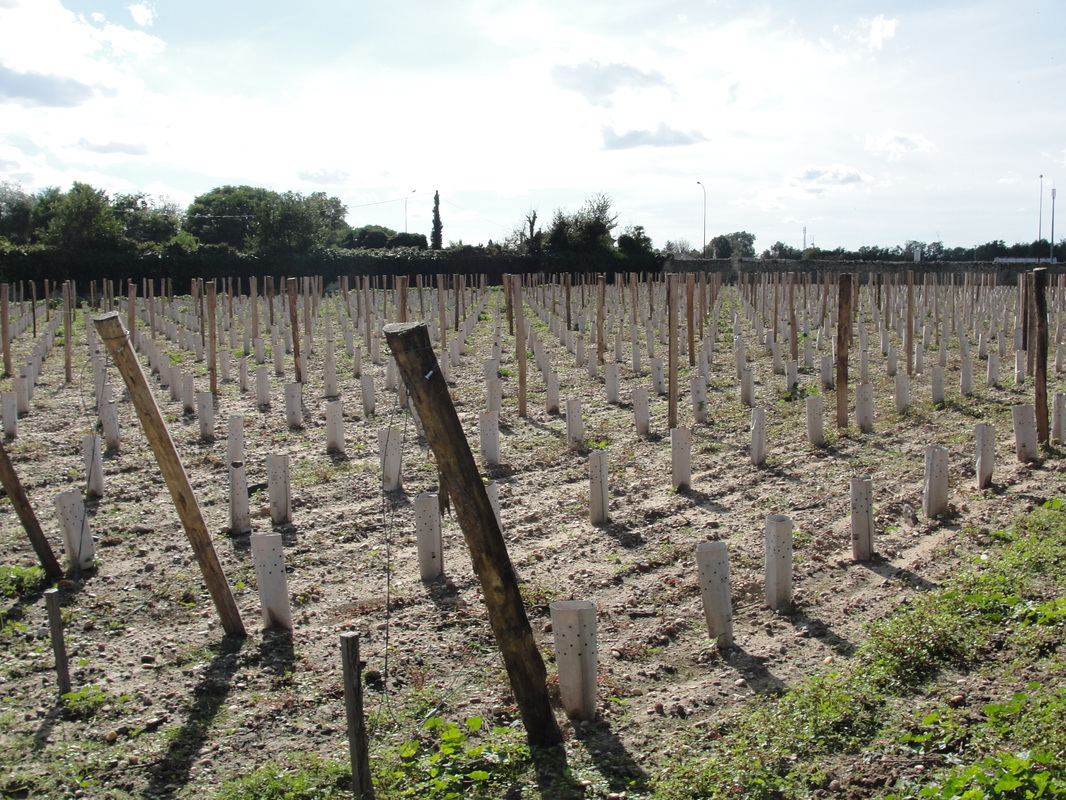
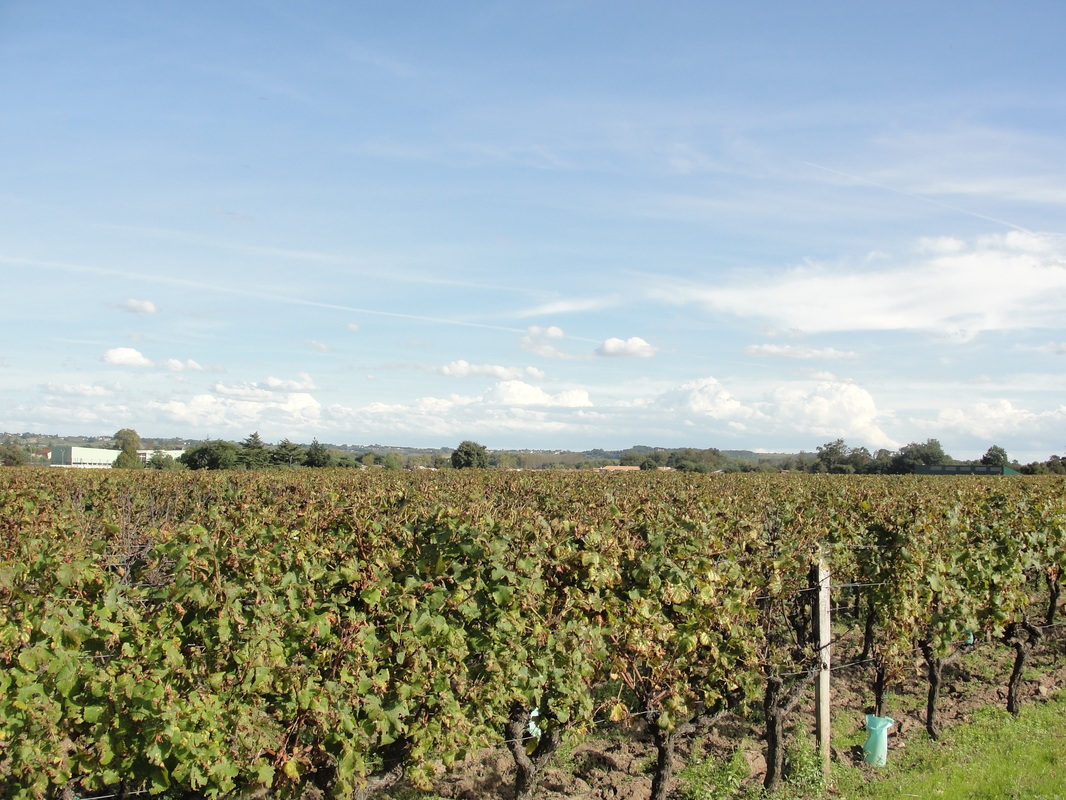




 RSS Feed
RSS Feed